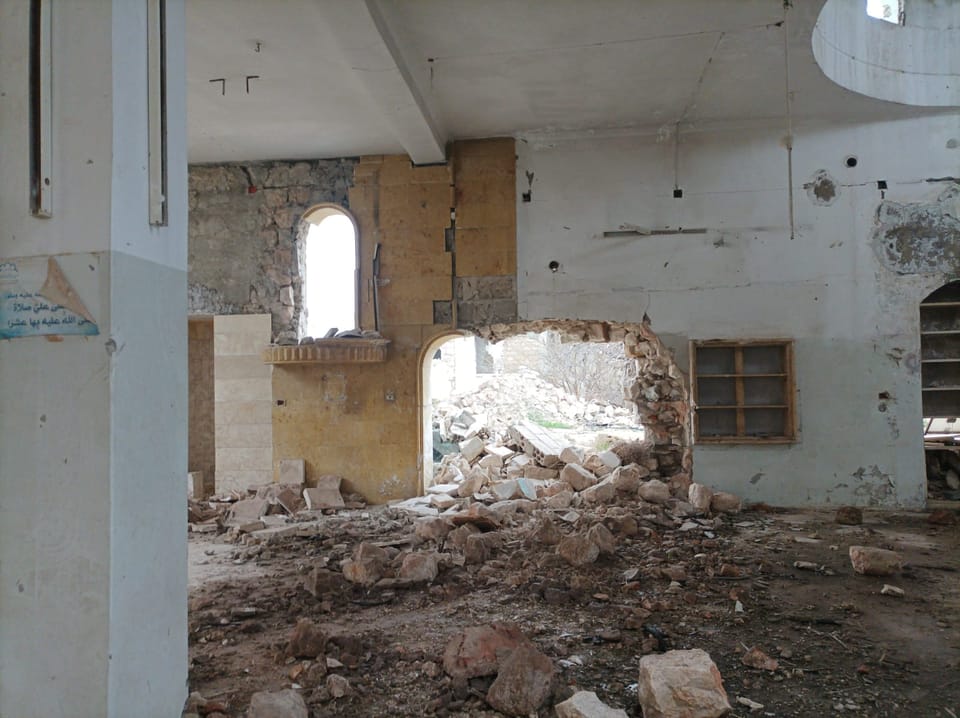
Overview of Institutions Pursuing Justice and Accountability in Syria
Since the fall of the Assad government in Syria, the transitional government of Ahmed Al-Sharaa has established several institutions to pursue justice and accountability efforts. These entities join an already long list of UN and other international mechanisms with relevant mandates in Syria. This article seeks to provide an overview of the relevant entities and clarify their various mandates.
Syrian Government Entities
National Commission for Transitional Justice (NCTJ)
The NCTJ was established on 17 May 2025 by Presidential Decree No. 20, 2025. It has been tasked with uncovering the truth about the grave violations committed by the former Assad government, holding those responsible accountable by acting in coordination with the relevant authorities of the new Syrian government, compensating victims, and supporting the principles of non-repetition and national reconciliation. Notably, the NCTJ’s mandate is limited specifically to crimes committed by the Assad government. The head of the NCTJ, Abdul Baset Abdullatif, has announced his intention to form a working group comprised of representatives from victim groups, legal experts specializing in criminal investigations and forensic evidence, and civil society organizations, though as of publication no such group has been announced.
National Commission for the Missing (NCM)
The NCM was also established on 17 May 2025 by Presidential Decree No. 19, 2025. This commission is tasked with researching and revealing the fates of missing and forcibly disappeared persons, documenting cases, establishing a national database, and providing legal and humanitarian support to their families. Unlike the NCTJ, the work of the NCM is not limited to those disappeared by the Assad government. However, the Commission’s work will be purely humanitarian in nature, meaning that evidence collected by the commission will not be used to support criminal trials against perpetrators. The commission is headed by Mohammad Reda Jalkhi and has an advisory board composed of a mix of technical experts, human rights defenders, legal professionals, and survivors of detention and torture. The NCM has begun conducting consultative events with families and civil society organizations.
Independent National Committee for Investigation and Fact-Finding on the Coastal violence
On March 9th 2025, President Al-Sharaa announced a national task force charged with investigating and uncovering the facts surrounding the violence on the Syrian coast that began on 6 March 2025. The Committee is to investigate the violence carried out against civilians and security personnel and refer perpetrators for criminal investigations. The Committee completed its work and announced the main findings of its final report on July 22 during a press conference held in Damascus. The commission confirmed that it had submitted the full report to the presidency. The commission was originally scheduled to submit a summary of its work within a month, but the deadline was extended to three months, ending on July 10.
International Entities
Independent Institution on Missing Persons in the Syrian Arab Republic (IIMP)
The IIMP was established in 2023 by the United Nations to clarify the fate of missing persons in Syria and provide support to families and victims. The mechanism has a purely humanitarian mandate and is seeking to establish the fates of Syrians both within and without the country (such as those that have disappeared during migration). The organization is currently based in Geneva but has requested to begin work inside the country.
International, Impartial, and Independent Mechanism for Syria (IIIM)
The IIIM was created by the United Nations in 2016 to collect evidence of war crimes and crimes against humanity committed during the Syrian conflict. The IIIM is not a prosecutorial entity; rather, it collects evidence and builds criminal cases to be shared with relevant jurisdictions. To date, the IIIM has primarily supported criminal trials in Europe in which Syrian perpetrators have been tried under universal jurisdiction laws. The IIIM is also currently based in Geneva but has requested to begin work inside the country.
International Committee of the Red Cross and Red Crescent (ICRC)
The ICRC provides humanitarian assistance and protection to individuals living in areas of armed conflict. The ICRC also works to reconnect families with missing loved ones, both through facilitating communication with those detained and through conducting forensic investigations, including the identification of human remains. Like the IIMP and NCM, the ICRC has a purely humanitarian mandate. Syrians can report their missing loved ones directly to the ICRC..
UN Commission of Inquiry (COI)
The COI was established in 2011 by the United Nations Human Rights Council. Its mandate is to investigate all international human rights violations taking place inside the territory of the Syrian Arab republic since March 2011. The Commission has produced over 20 reports since its inception documenting specific examples of war crimes and crimes against humanity, and, as of December 2024, interviewed more than 11,000 victims and witnesses.
___________________________
For more information or to provide feedback, please contact SJAC at [email protected] and follow us on Facebook and Twitter. Subscribe to SJAC’s newsletter for updates on our work